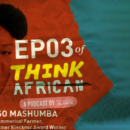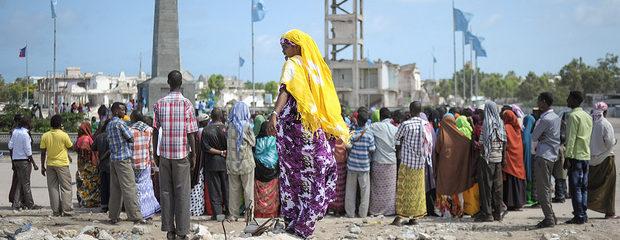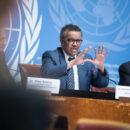Elections will be tricky, but Burkina Faso has an even bigger problem
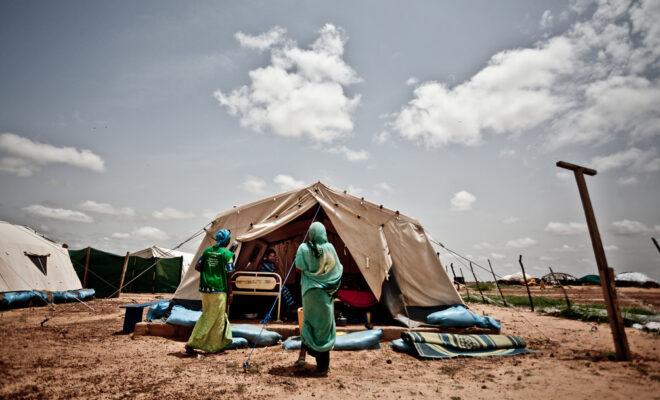
The Islamist militant threat constitutes a full-blown insurgency. Jihadist groups control significant territory and have displaced over 1 million people.
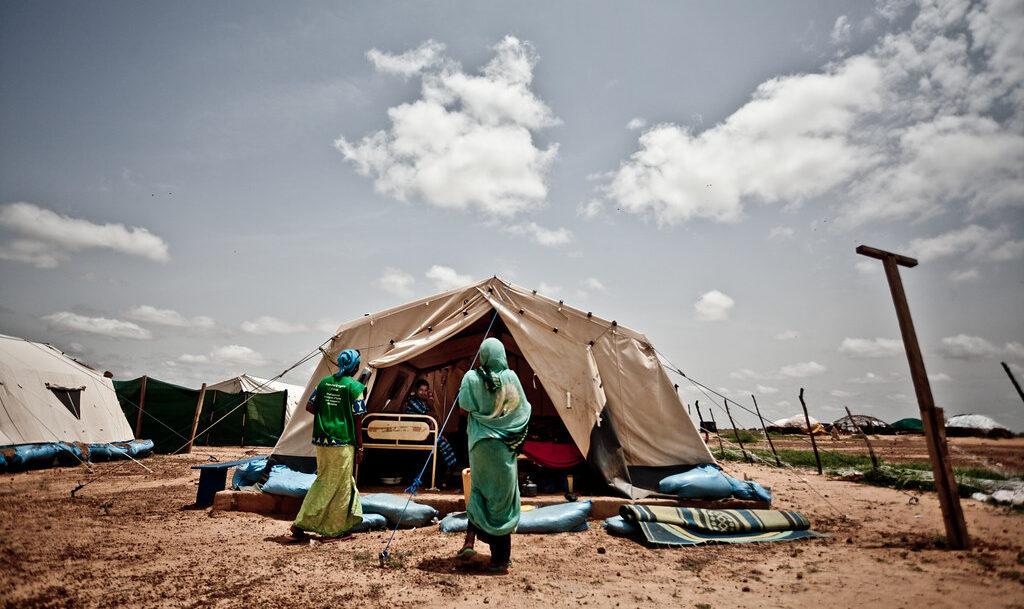
A refugee camp in northern Burkina Faso. Credit: Pablo Tosco/Oxfam.
When Burkina Faso holds presidential and legislative elections on 22 November, the key question might not be who will win but rather how the country will handle an array of forces threatening to erode its democratic institutions moving forward. The upcoming poll will face several difficulties, but if peace and security are not restored over the next five years, holding elections may be the least of Burkina Faso’s concerns.
The 2020 elections will be the second since the overthrow of the authoritarian President Blaise Compaoré in 2014. The first, in 2015, was accompanied by high hopes that the country had entered a new chapter. Roch Marc Christian Kaboré emerged victorious and there was talk of national reconciliation, an end to corruption and impunity, greater social and economic development, and closure around the saga of the iconic former president Thomas Sankara’s 1987 assassination.
Just two months after Kaboré’s victory, however, terrorist attacks in the capital Ouagadougou heralded the arrival of a sinister new threat. The assaults were perpetrated by the Mali-based AQIM (“Al-Qaida in the Islamic Maghreb”) and Iyad Ag Ghaly’s JNIM (“Group for Support of Islam and Muslims”). Many suspected that Compaoré had had a hand in unleashing them. The former president has a history of cooperating with jihadist factions and played a prominent role in regional mediation efforts. It was suggested that former elements of Compaoré’s disbanded Presidential Security Regiment (RSP) had covertly colluded too.
Since then, jihadist violence has grown in ferocity and frequency. Burkina Faso now sees more daily terrorist attacks than Mali. These have included heavily armed sieges on military headquarters in Ouagadougou and the French embassy as well as hundreds of massacres in the northern regions.
This violence is part of regional jihadist conflicts, but it also has a homegrown component. As well as Islamist militants spilling over the border from Mali, Burkina Faso has produced its own local movement Ansarul Islam. Initially led by the now-deceased Peul preacher Malam Ibrahim Dicko and based in the northern Soum province, the group began as a Salafist movement. It gained followers among people who had grown frustrated with their marginalisation as state authority dwindled in the wake of Compaoré’s overthrow. Eventually, the movement morphed into a violent jihadist group, carrying out killings to impose its brand of Islam on locals.
The various jihadist groups operating in Burkina Faso now constitute a full-blown insurgency. They have taken over considerable territory in which jihadists assert political control over local chiefs, engage in smuggling and banditry with impunity, and exploit local resources such as gold to buy more arms.
In this year alone, Burkina Faso has seen over 2,000 deaths from jihadist terrorist attacks. At least 1 million refugees have fled their homes in northern and eastern regions in what the UN has described as the world’s “fastest-growing displacement crisis”. More than 2,500 schools have been closed, children and teachers have been murdered, and some 350,000 students have been forced from school, leading Human Rights Watch to warn of the “devastating impact” of the crisis on education. The impact of climate change, widespread food and water shortages, and COVID-19 have only made matters worse. The World Food Program now says that 3 million people are facing acute food insecurity and that the country is “one step short of famine”.
A disenfranchised north?
Recent news suggests that whole swathes of northern Burkina Faso will be too unsafe to hold elections on Sunday. Some estimate that voting will not be possible in 17% of electoral communes, meaning the disenfranchisement of roughly 400,000 people in the rural north. Coupled with the lack of development, forms of ethnic exclusion, and government inaction against the Islamist militants, this could further alienate people and push them closer to accepting the jihadists as de facto rulers.
Thus far, Burkina Faso – and its US and French partners – has struggled to contain jihadist violence. In the face of this, it has out-sourced counter-insurgency to ethnically-based local militias such as the dozos and koglweogos. Built on traditional hunter’s guilds, these groups have appeared in various guises, from vigilantes fighting crime to shock troops confronting jihadists. They’ve also emerged as major local powerbrokers in electoral politics and there are fears they could be mobilised in election-related disputes. Coupled with the documented abuses of security forces, this patchwork of militias, in tandem with the jihadist groups, represents a potential threat to social cohesion.
According to most reporting, President Kaboré will likely win re-election. If he fails to secure a majority in the first round, an opposition candidate such as Zéphirin Diabré (UPC) or Eddie Komboïgo (CDP) could pull off a surprise victory in a run-off, but this remains unlikely.
Nonetheless, the incumbent has become increasingly unpopular partly due to his perceived failures regarding security. In recent days, both Diabré and Komboïgo have proposed negotiating with the jihadist groups to restore peace. These proposals reflect broader sentiments, and even a certain nostalgia, that things were not so bad under Compaoré. Some have even called for the return of the former president, which must be music to his ears, imagining a triumphant return to save the nation. Kaboré has responded head-on, declaring that “we will not negotiate with those who plan to dismantle Burkina”.
Putting aside personal ambition
With no end in sight to the jihadist insurgency, “national reconciliation” has taken on new meaning. It’s clear that winning back territory and establishing peace and security will require a robust national effort. It’s difficult to imagine how this will be possible without the use of military force and at least some form of negotiation with jihadist groups. But to avoid more generalised inter-communal violence, the central government would be wise to discontinue its outsourcing of counter-terrorism operations to local militias. It will need to field a “more integrated approach to security” and address the “political roots of the crisis”, as International Crisis Group has suggested.
This is far easier said than done. We have seen how forms of ethno-nationalism and right-wing authoritarianism feed on chaos and division. Democratic erosion takes many forms, and the direct challenge that jihadist violence and “war on terror” responses pose to liberal democracies are arguably among the most difficult to solve.
Given this, political leaders in Ouagadougou must do everything possible to pre-emptively shore up democratic institutions, rather than erode them. They will have to resist the temptation to exploit divisions for narrow political or electoral gain. They must equally strive to restore faith in the system, perhaps via some sort of unity government aimed at rebuilding social trust between people, taking northern grievances seriously, and inviting all stakeholders to the table – from all corners of the country.
Regardless of who wins, there will be little to celebrate this time around. Ideally, the political class should immediately set politics and personal ambitions aside and summon all hands on deck for what is becoming a battle to save their “Faso”.


